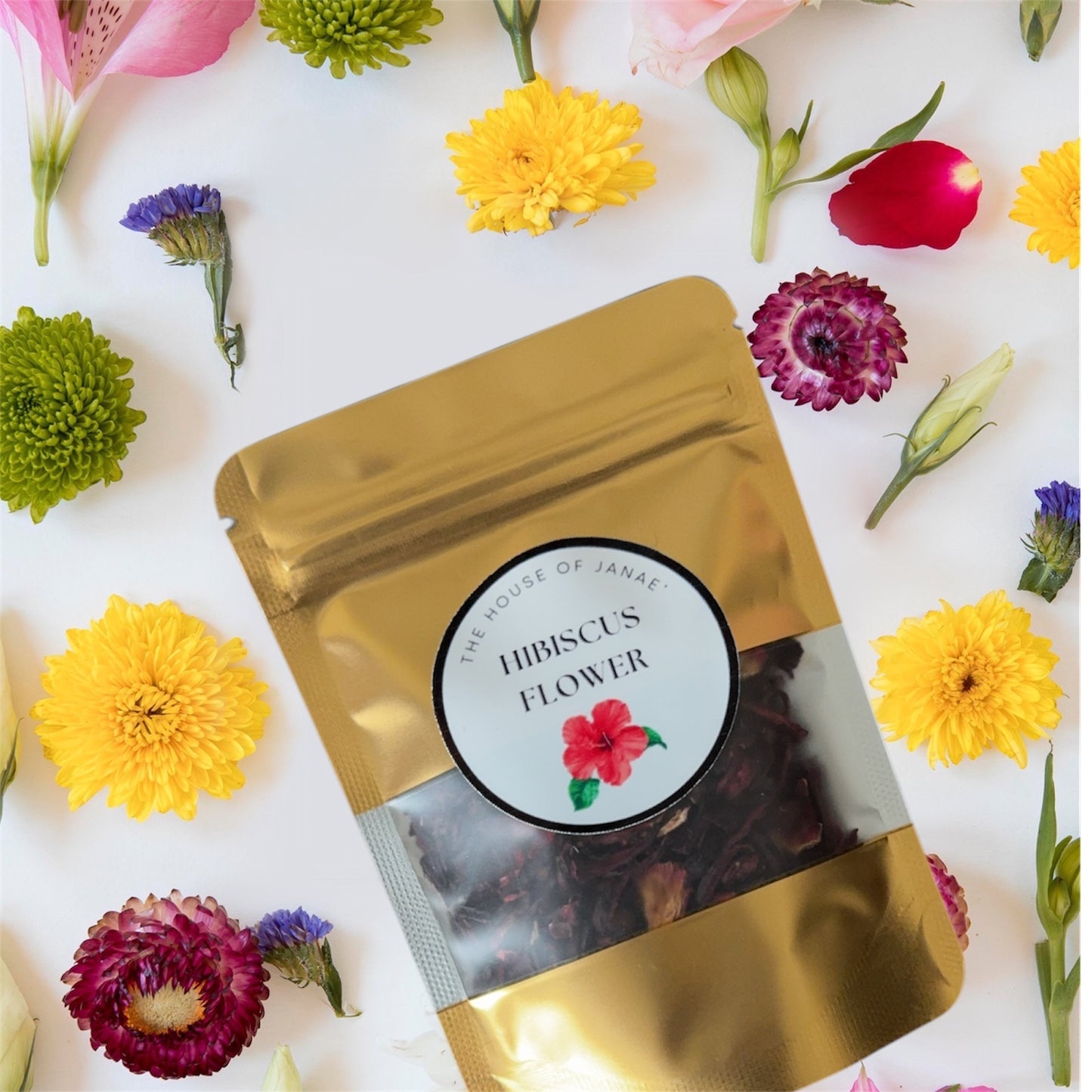Hibiscus Flower
Hibiscus Flower
Couldn't load pickup availability
Hibiscus has shown potential in supporting blood pressure and blood sugar regulation due to its unique compounds, which contribute to its beneficial effects. Here’s how it helps:
1. Blood Pressure Regulation
Hibiscus is often used in the form of tea, and several studies suggest it can have a positive effect on reducing blood pressure, especially in people with mild to moderate hypertension. Here’s how it works:
• Vasodilation: Hibiscus helps to relax and widen blood vessels, which allows blood to flow more easily and reduces the workload on the heart, lowering blood pressure.
• Diuretic Effect: Hibiscus has natural diuretic properties, meaning it helps the body excrete excess sodium and fluid, both of which can contribute to high blood pressure. This helps reduce the overall fluid volume in the blood vessels.
• Antioxidants: Hibiscus is rich in antioxidants like vitamin C and anthocyanins, which can help reduce oxidative stress and inflammation, both of which are linked to high blood pressure.
Research on Blood Pressure
• A 2015 study found that drinking hibiscus tea significantly reduced systolic and diastolic blood pressure in individuals with high blood pressure. Another study showed that hibiscus tea is as effective as some prescription medications for controlling blood pressure in people with mild hypertension.
2. Blood Sugar Regulation
Hibiscus may also play a role in helping to manage blood sugar levels and insulin sensitivity:
• Improves Insulin Sensitivity: Hibiscus may help the body use insulin more efficiently, which can aid in blood sugar control. This effect is particularly beneficial for people with pre-diabetes or type 2 diabetes.
• Inhibits Carbohydrate Absorption: Some studies suggest that hibiscus extract may inhibit alpha-amylase, an enzyme responsible for breaking down carbohydrates into sugar. By slowing this process, hibiscus can help reduce post-meal blood sugar spikes.
• Antioxidant Properties: Hibiscus contains polyphenols and flavonoids, which have been shown to have beneficial effects on glycemic control and insulin resistance by reducing oxidative stress that can damage insulin-producing cells.
Research on Blood Sugar
• A study in 2013 published in the Journal of Ethnopharmacology found that hibiscus extract reduced blood sugar levels in people with type 2 diabetes.
• A 2014 study showed that hibiscus tea improved glycemic control in people with metabolic syndrome, a precursor to diabetes.
How to Use Hibiscus for Blood Pressure and Blood Sugar
• Hibiscus Tea: Drinking 1–2 cups of hibiscus tea daily is the most common way to incorporate it into your routine for its blood pressure-lowering and blood sugar-regulating effects.


